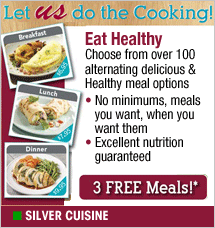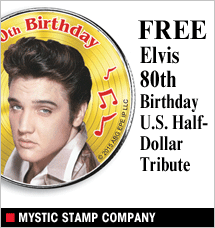
Long before I was a senior I was hooked on cigarettes and I had plenty of help getting there. Television entertained me with a dancing pack of Kents; glamorous movie stars seduced me when they clutched cigarettes in long, jeweled cigarette holders. R.J. Reynolds hooked many of us by giving away small packs of five. College athletes would find them in their dorm rooms; airline passengers found them on their food trays. Back in the day, smoking was the thing to do.
After 22 hours in hard labor, my firstborn entered the world. Exhausted, I exited the Delivery room, gazed at my husband and said, "Hey sailor, got a cigarette?" He looked at me like I had pablum for brains.
Eventually, after joining the senior ranks I remarried. My husband and I made a pact to stop smoking right after the wedding. We coughed out the official "I do," but within five minutes were lighting up with the Marlboro Man.
Holy smoke! How messed up was that?
I loved cigarettes as much as I loved the taste of chocolate but a pact was a pact, so I grudgingly said goodbye to the Marlboro Man even though I still wanted to smoke, smoke, smoke that cigarette. The craving hit after every meal or when it was five o'clock somewhere in the world. It haunted my waking moments and invaded my dreams. I was a casualty of habits determined to cling to me like a sick kitten to a hot brick. Although I honored our wedding day deal, I dreaded the thought that I was destined to crave a smoke for the rest of my life.
It was inevitable that at some point, I would have a meltdown and begin sneaking cigarettes behind my husband's back. I was a kid again doing something I shouldn't and getting away with it. I liked it but guilt ate me up.
My addiction to cigarettes was as much psychological as physical. I resented not being able to smoke in social situations and that made me crave one all the more. I so wanted a cigarette after meals. It was not until I took a hard look at my addiction that I was able to figure out how to tackle the difficult task of quitting once and for all.
The Cancer Society helped by providing me with a plethora of tools to make a smooth transition from heavy smoker to non-smoker.
I bought patches to conquer the physical withdrawal, but after every meal I still longed to smoke. Eventually, I was able to see that giving up cigarettes was comparable to a crash diet. When I stopped dieting, I ate everything that had been a no-no. Similarly, when I gave up cigarettes, I didn't give up the craving. I could easily have eaten them.
In order to combat the feeling of always being deprived, I gave myself permission to smoke a pack of cigarettes one week a year. Without guilt.
For the first few days I smoked only after meals or while enjoying a cocktail, two of my biggest psychological hangups. By the end of the week, my cravings were almost gone and I had cigarettes left over. Guilt-free smoking for a short period of time allowed my body to adjust to a gradual withdrawal. My brain followed suit but first I had to determine why I smoked before I could say a final goodbye to the Marlboro Man.
My method for ridding myself of cigarette addiction may not work for all seniors, but it might. Coming to grips with why you smoke, where you smoke and when you feel the most deprived is the first step in dealing with the craving. If the patch works on the physical need, then check out the psychological part of the desire to smoke. It may provide, as it did in my case, the answer to throwing cigarettes away forever.
There is more information available today expressly for seniors than ever before and more to come. If you are ready to kick the habit, you can get help from any of the following resources:
- At www.cdc.gov/tips you can download a Quit Guide, connect with former smokers, and get support for those times when you don't feel you can go another day without smoking. You may even be eligible for free patches through this link to the Center for Disease Control.
- SmokefreeTXT at Smokefree.gov is a mobile text messaging program that provides 24/7 tips, advice, and encouragement to help you quit smoking. You can sign up for SmokefreeTXT by completing the online form and clicking "Subscribe."
Free telephone support and other worthwhile help is available for Californians at http://www.nobutts.org/medi-cal.- Quitting Smoking for Older Adults offers videos, worksheets, interactive features, strategies, quizzes, and more for older smokers who want to quit.
- Go to: www.nihseniorhealth.gov/toolkit/toolkit.html for tips and tools geared to the needs of older smokers trying to quit for the first time as well as those who have tried before.
- Clear Horizons: “A Quit Smoking Guide for People 50 and Older,” is a PDF booklet that includes information about the challenges and advantages of quitting when you're older, smoking's effect on medications, how to handle withdrawal, cravings, and much, much more.
- Quitting Smoking for Older Adults, a roster of research-based health topics is geared toward older adults. NIHSeniorHealth, a joint effort of the National Institute on Aging (NIA) and the National Library of Medicine (NLM), is senior friendly and tailored to the needs of older adults. The short, easy-to-read segments of information in large print, captioned videos, and simple navigation on the site are easy for seniors to find, see, and understand.
- www.nia.nih.gov, the National Institute of Aging conducts and supports research on the health and well-being of older people.
- www.nlm.nih.gov, the National Library of Medicine, collects, organizes, and makes available biomedical science information to scientists, health professionals, as well as the public.




























































